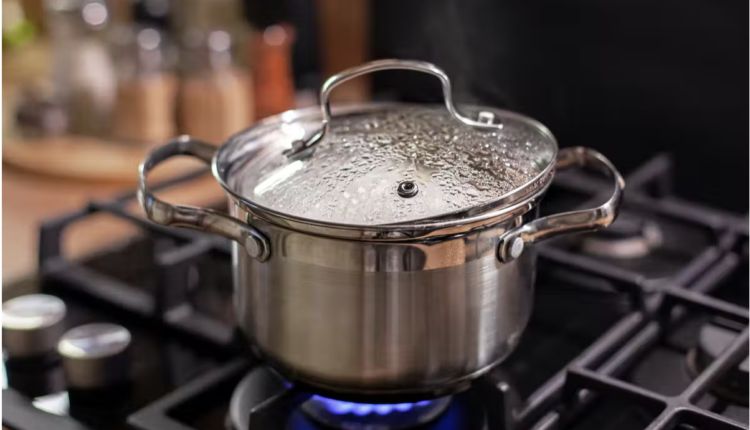Are You a Renter? Here Are Five Ways to Conserve Energy
by Sharon George
Research suggests that our motivation to save energy is influenced by factors including our personality, the attitudes of our family, and the behaviour of those sharing our residence.
Yet for environmentally conscious tenants, renting can be a particular challenge. Restricted in how far we can change our properties, tenants have less freedom to undertake energy-saving home improvements. Even the efficiency of the appliances in our homes is often determined by our landlord.
But here are five ways that research suggests you can save energy in your rented property while maintaining a good relationship with your landlord.
1. Keep the heat in
Heat leaks out of your home through windows, doors and floors. Draught-proofing – where gaps that let cold air in or warm air out are blocked – is an effective way of preventing heat loss.
Curtains and blinds help to retain heat. Research has shown that the effective use of curtains can improve the heat retention of a double-glazed window by around 38%.
Another option is to install insulating plastic film covers over your windows. This can allow your home to retain around 24% more heat.
There are various ways to draught-proof your doors. Brush strips can be installed to close gaps at their base, brush covers can prevent heat from escaping through the letterbox, and a disc flap can cover the keyhole.
But up to 10% of your home’s heat is lost through the floor. Cold air circulates below ground-floor floorboards and can rise through the gaps between them.
Covering the floor with rugs or mats adds a layer of insulation. But it is important that the entire floor area is covered and that the carpet pile is thick. One study suggests that a 10mm-high pile of carpet can reduce your energy use by 12.8% on average.
2. Make better use of your radiator
Giving your radiator space will allow heat to radiate into the room instead of being absorbed by the furniture. Around 30cm of space in front of the radiator will help to circulate warm air.
Because of their high surface temperature, you may have installed wooden casings on the external surface of your radiators. But these casings are insulating and can reduce a radiator’s heat output by up to 40%.
An alternative is to apply a magnetic radiator cover. The reduction in a radiator’s heat output falls to just 11% when replaced with a magnetic cover.
3. Lower the temperature
Room temperatures can also be reduced without sacrificing our own comfort. The extent to which a room is naturally lit alters our perception of how warm we are.
Warming up parts of the body can also trigger a perception response in humans. This process is called spatial alliesthesia. The pleasure we feel from one part of the body being warm can improve our overall comfort at lower temperatures.
4. Save energy in your kitchen
Cooking can be energy intensive. A conventional oven costs around 71p an hour to run.
Alternative cooking appliances including air-fryers and microwaves use significantly less energy. They tend to be smaller than a conventional oven and do not require pre-heating, thus reducing overall energy use.
Many rental properties have their kitchen appliances already installed. But energy savings can be achieved by using them efficiently.
Cooking in a pan with the lid on traps heat and allows the cooking temperature to be maintained with a lower input of energy. This can save you 30% of the energy used when cooking in an uncovered pan. However, the savings depend on using the right size pan and only heating the amount you need.
A fridge consumes energy continuously. A pressurised refrigerant fluid absorbs heat from the fridge as it turns from a liquid into a gas. The coils at the back of the fridge then help to cool and condense the refrigerant, releasing heat from the fridge in the process. But dust accumulates on the coils and interferes with the transfer of heat by adding a layer of insulation. Cleaning the coils can deliver energy savings by up to 25%.
By filling empty fridge space with containers, you can also reduce the work your fridge has to do to cool its internal space. This reduces the volume of cool air that escapes each time the door is opened.
5. Understand your energy use
However, research has shown that energy-saving advice is unlikely to improve our energy consciousness. One study found that variable electricity pricing did not induce energy conservation. Although consumers responded by switching their energy use towards cheaper off-peak periods, their overall energy use increased.
What impels us to change our energy use is visualising the immediate impact of our energy consumption. Smart meters visually display our energy use and its associated cost, allowing us to better manage our energy consumption.
In a study of 200 Danish rental apartments, consumption of electricity, heating and water all fell in rental properties following the installation of a smart meter. But other factors may have also influenced consumers’ behaviour. The researchers found that residents used less energy regardless of whether they actively interacted with the smart meter or not.
The fabric of rental homes is often fixed. But by combining greater awareness of our energy use with improving the efficiency of our living spaces, we can reduce our energy use.


Comments are closed, but trackbacks and pingbacks are open.